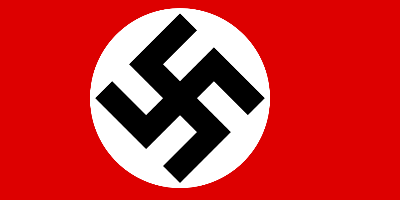20 feb 1939 anni - Belgian Congo Crisis
Descrizione:
The British were adamant that the Congo should not fall into Axis hands, and they intended to attack and conquer the territory if the Belgians did not reach an agreement.This was particularly true because the Allies were in severe need of raw commodities such as rubber, which the Congo could produce in abundance.
The British Foreign Secretary notified the Belgian ambassador in London on June 20th that the UK would not allow German supremacy over the colony.
Meanwhile, the Belgo-Congolese businessmen suggested that de Vleeschauwer travels to London to ensure that Belgian sovereignty over the Congo is honoured. Belgian Prime Minister Hubert Pierlot proposed that de Vleeschauwer should have the new title of Administrator-General of the Congo, which would allow him to continue this cause even if the government failed; his ministerial mandate became null and invalid.
The government agreed to the plan, and on June 18th, it issued an arrêté-loi handing de Vleeschauwer the title and full legislative and executive power over the Congo. The decree also stated that if the administrator-general can't carry out his responsibilities: the governor-general would take over. Despite being granted his own emergency powers under the Congo's colonial charter, Ryckmans viewed the arrêté-loi as allowing him to take steps in regions not previously touched by de Vleeschauwer's directives, and he went on to rule the colony through a series of legislative ordinances.
Despite his presence, de Vleeschauwer was politically marginalised by Belgian Finance Minister Camille Gutt and afterwards had little part in the cabinet. There was also disagreement between de Vleeschauwer, who wanted to maintain his power over the Congo, and Belgian Foreign Minister Paul-Henri Spaak, want to be more accommodating to Allied influence in the colony.
Pierlot, de Vleeschauwer, and the two other ministers formally created the Belgian Government-in-exile, recognised by the United Kingdom in February.
Meanwhile, some in occupied Belgium feared that if the Congo sided with the Allies, it would permanently lose as a Belgian colony. The Germans established a "Kolonial Politisches Büro" in Brussels, attempting to connect with what remained of the Ministry of Colonies.
The Germans were irritated by the Congo's support for the Allies and threatened Belgian colonial enterprises with sanctions. Leopold III was dissatisfied with Ryckman's decisions and believed the colony should remain neutral.
Royalist politicians in London sent messages to Belgian authorities and attempted to persuade them not to allow the Congo to support the British war effort.
In February 1940, Leopold III asked Adolf Hitler for permission to send an emissary to Léopoldville to persuade the colonial administration to declare neutrality, but the trip was never authorised.
Aggiunto al nastro di tempo:
Data:
20 feb 1939 anni
Adesso
~ 86 years ago
